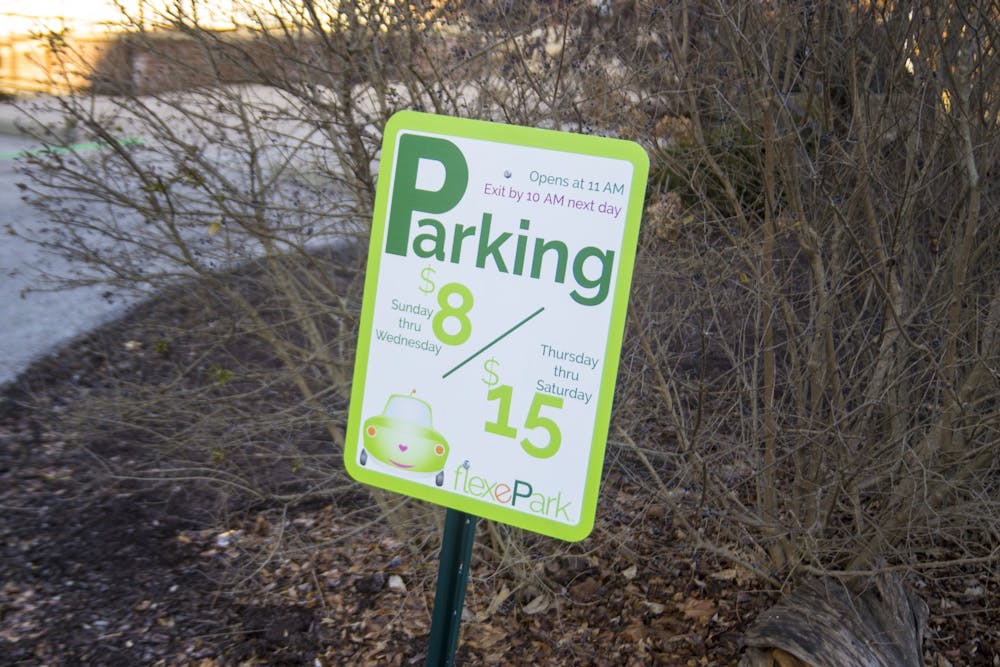In a packed college town like Bloomington, Michael Dowden said he knows how frustrating it can be to find parking.
That’s why he is expanding his company, FlexePark, to provide more available parking lots in Bloomington. The company partners with companies to provide paid parking spaces in the existing parking lots of businesses when they are not being used.
“It works well in college communities; that’s a great place to start expansion,” Dowden said. “It’s where a lot of the activity and investment happens. They’re extremely saturated.”
When they reach out to the businesses, FlexePark sets up everything and sends them a monthly check based on the activity on the property. To park, patrons scan the QR code on the sign to pay the parking fee.
“We’ll install signs on the property, set up the parking lot and park system,” Dowden said. “The signs include instructions on how to use the system."
He said most businesses only use their parking lot 25% of the time, and by actively managing the property they are cutting down unwanted activity like loitering.
The new lots are at White Rabbit Print and Design at 601 S. Walnut St., Topo’s 403 at 403 N. Walnut St., and a lot on 700 N. Rogers St.
Ryan Rud-Cloud, the owner of White Rabbit Print and Design, spoke highly of how simple the setting-up process was.
“They took care of literally everything but the signage. It didn’t cost us a dime,” Rud-Cloud said. “As a small business it’s always a challenge, so we’re looking for ways to bring in additional revenue.”
He said if they move their business, they will set up FlexePark in their new location.
First United Methodist Church, at 299 E. Third St., increased its spaces from 28 to 60. Vince Taylor, chair of church trustees said its use is increasing since they started working with FlexePark last April.
“If people want to help run our lot efficiently, of course we’re going to consider that possibility,” Taylor said.
FlexePark is located in Bloomington and Indianapolis, but Dowden said they are working on sending sales ambassadors to multiple other mid-sized cities such as Fort Wayne, and and Columbus, Ohio.
“If you look at New York, Chicago, L.A., most of the parking startups get started there,” Dowden said. “Their parking challenges are different than what most of America experiences.”




